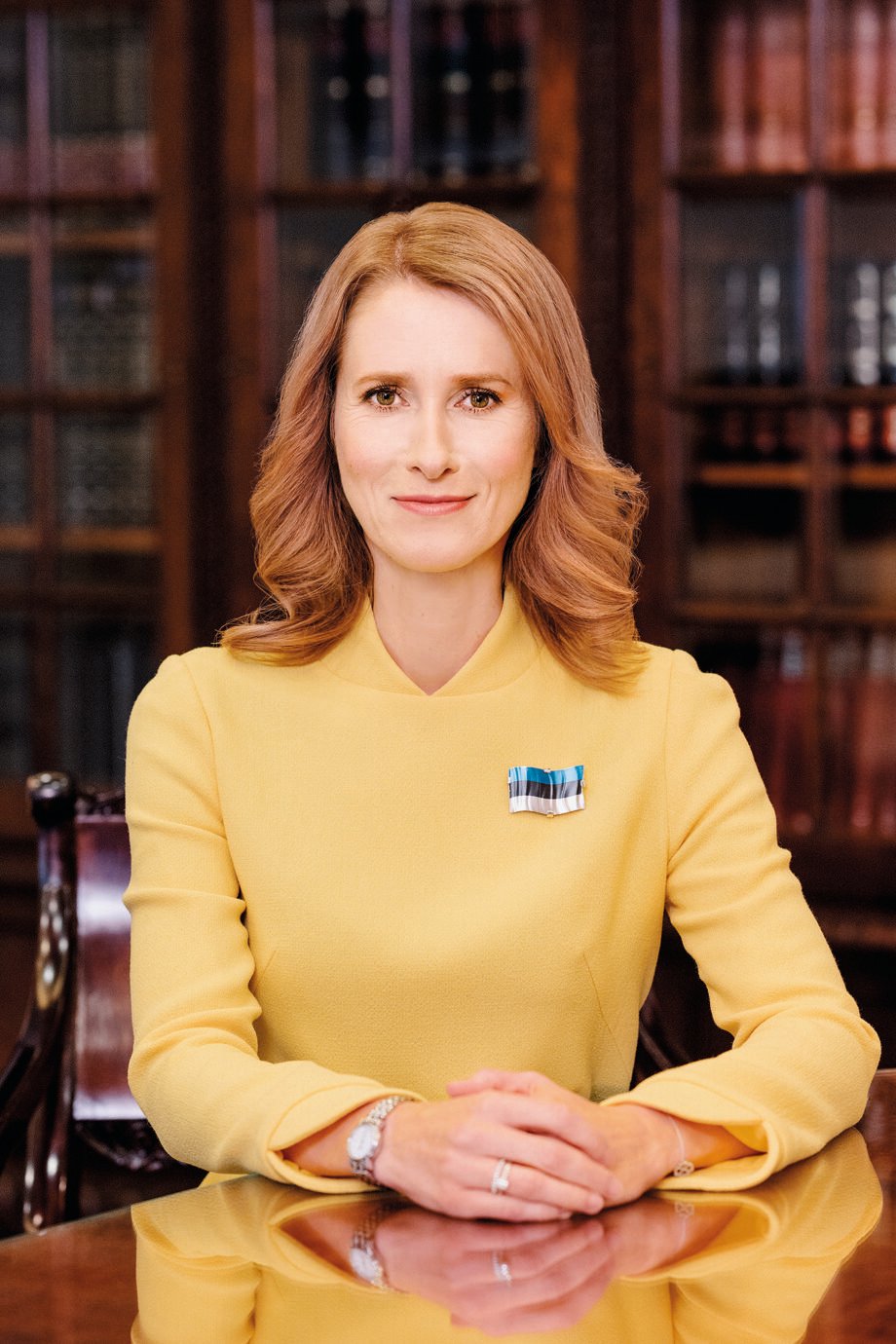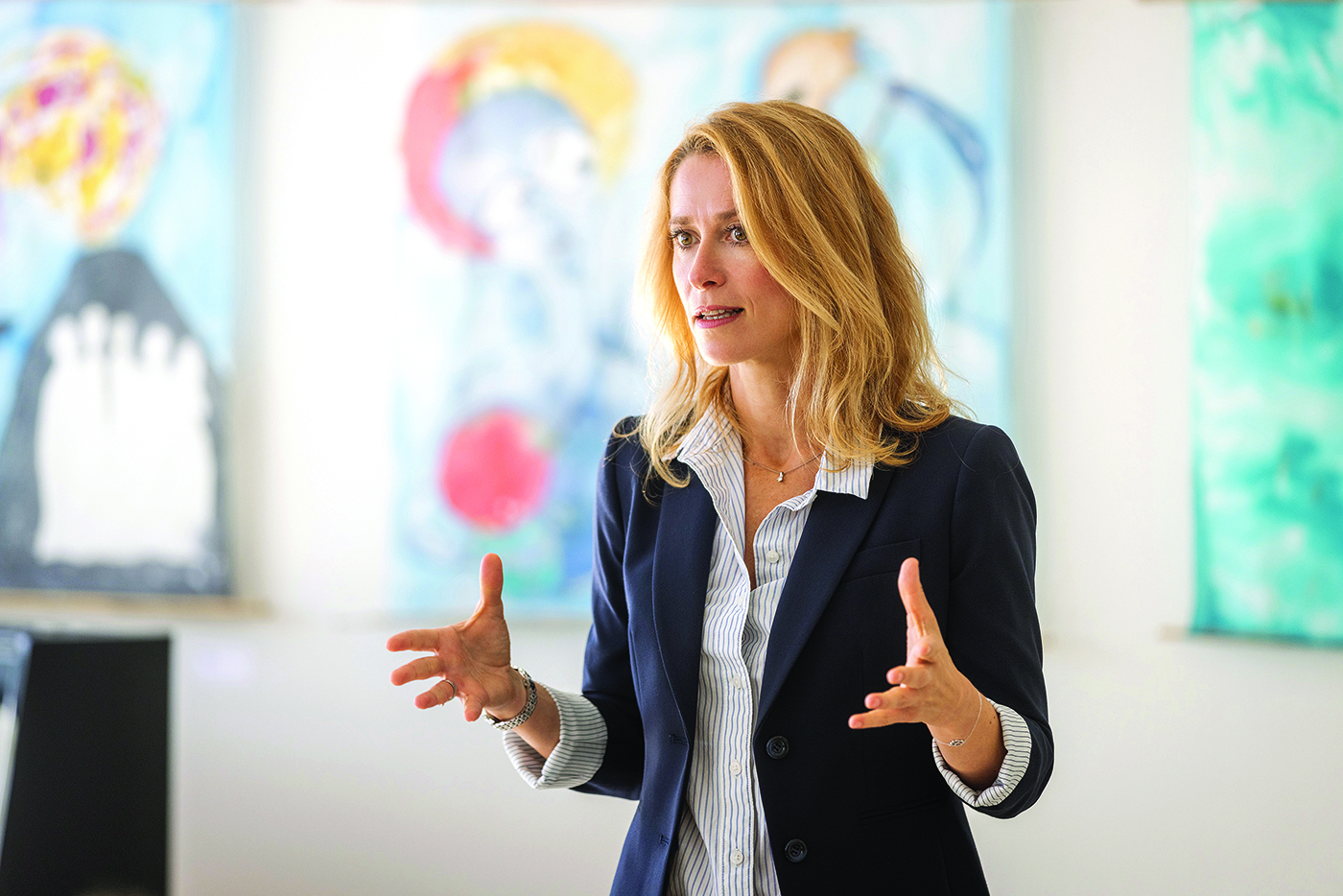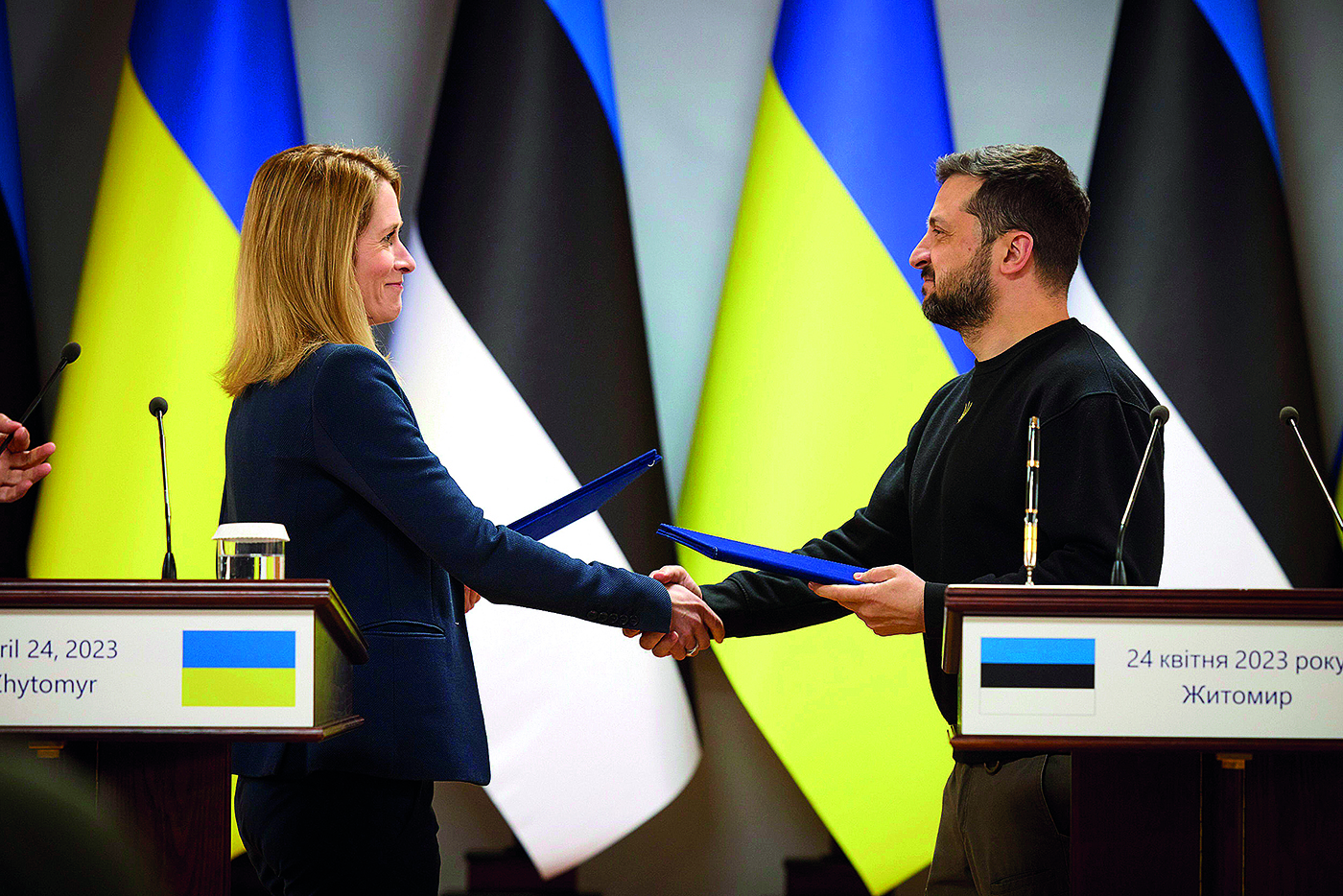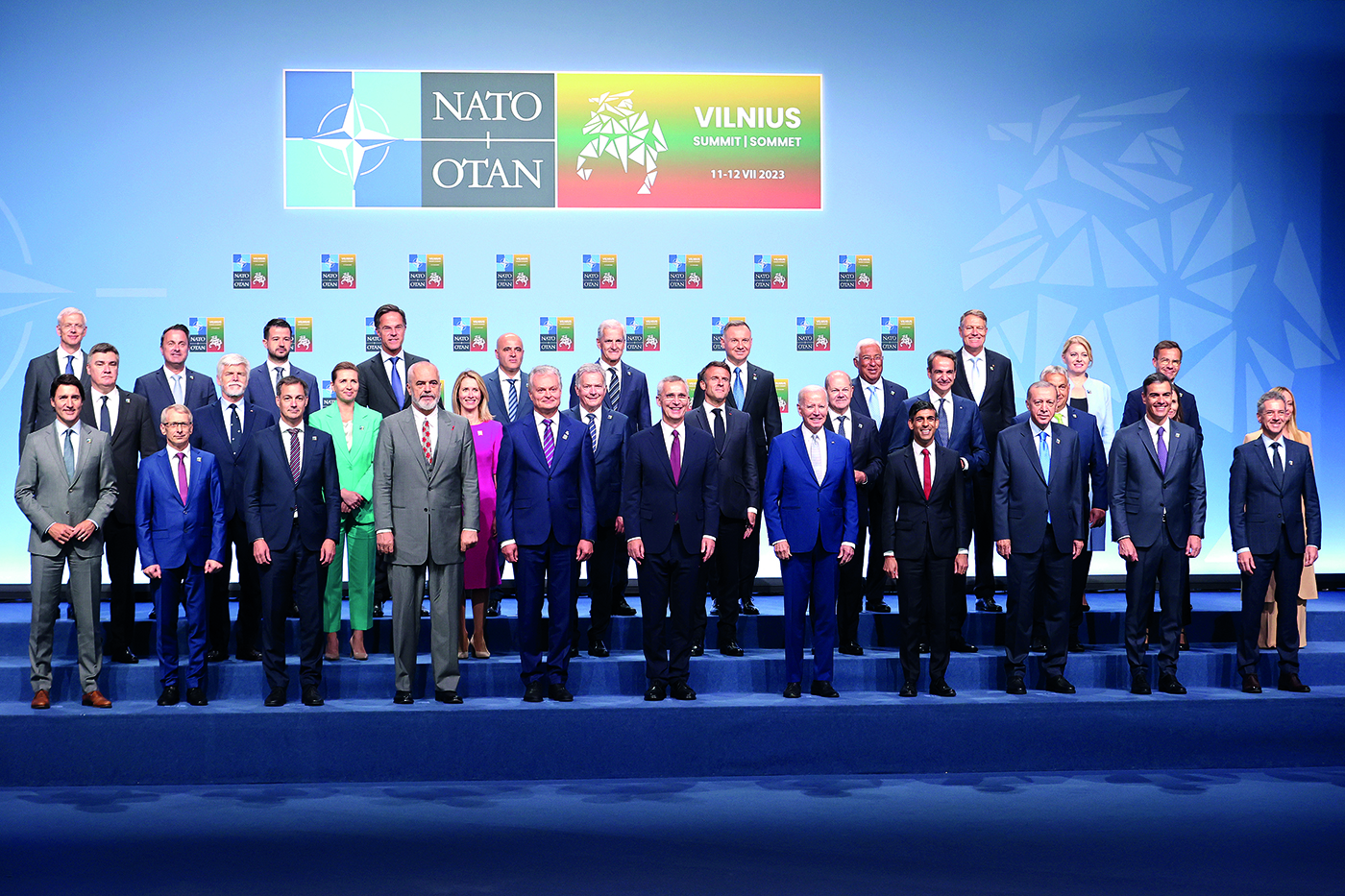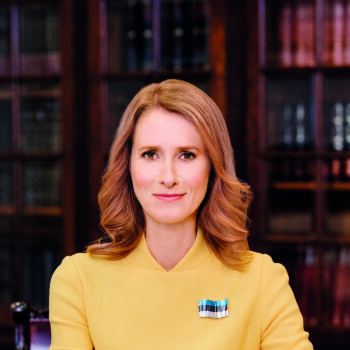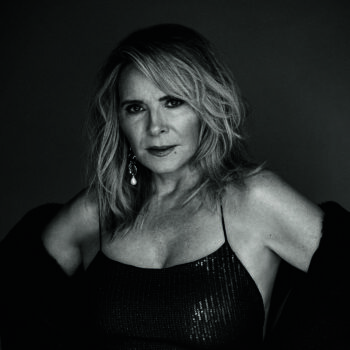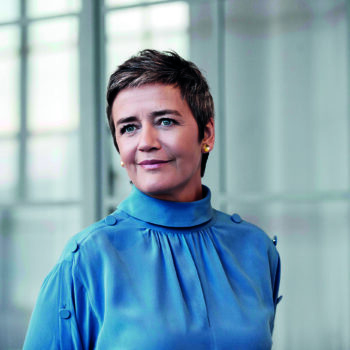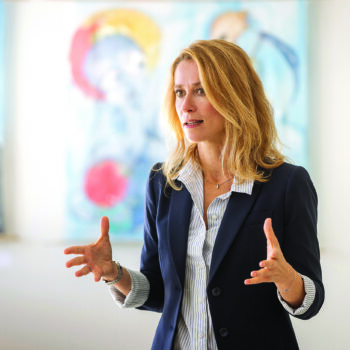That’s true, I try to keep a balance in my cabinet when it comes to women and men – in my first and second cabinet they were in equal numbers. When I was elected leader of my party, many doubted whether I had what it takes. According to my résumé, I had 14 years of experience in the private sector, was partner in two of the biggest law offices in Estonia, member of the Estonian and the European Parliament, Chairwoman of the Economic Affairs Committee, a business consultant, and spoke several languages. If you take the résumé of one of my male colleagues, for example the leader of the opposition party, you will find that his first professional experience was Parliament member and then minister, and that he speaks one language. But it was my skills that were questioned. At the beginning of my term as Prime Minister, even my supporters told me to gain weight, to cut my hair, wear suits and glasses, speak in a lower voice – I realized they were telling me to look, speak, and act like a man, but the thing is I am not a man and I have always been very feminine, I’ve always liked dresses. I felt that, in people’s minds, high ranking positions are linked to men in suits, and everyone thought there was something wrong with me, and couldn’t quite figure out what that was – my mistake was I was a different gender. I decided I wouldn’t change; I still wear dresses and I only have two trousers for when I need to attend military events. I think I managed to change this way of thinking, by showing that women can do things in a different way, but that doesn’t mean it won’t be as good. Good politics have nothing to do with gender – everyone has different life experiences and, in order to keep a balance in decision-making, there should be a balance in our representation.
Politics is also a family matter for you, given that your great-grandfather and your father played an important role in Estonia’s political scene. Did that affect your decisions for the future? Were you always interested in politics?
My mother is a doctor, my father a politician, and my brother works in economics. I remember when I had to choose what to study, I said that I didn’t want to do any of these things, because I wanted to be No.1 at what I did. That’s why I chose Law, so that no one would compare me to my family members, since none of them were lawyers. Growing up we always had political discussions at our table, and I was interested in hearing them and learning about the struggle for my country’s independence, and our first President… I started working as a lawyer when I was 19, because that’s when the process of Estonia’s independence started. While we were part of the Soviet Union there was no private property or market economy so everything had to be legislated from scratch. And who could help writing the laws? Law students, that spoke foreign languages and could read other countries’ legislature and use the best parts of each constitution. Law students also knew the legislature better and, when the market opened, were able to consult the new investors. At 27, I was already a partner in a law office and at 32, I was a partner at a second one and was playing golf all day, because that was how my distinguished colleagues and partners from other countries that were around 60 years old spent their time. That’s when I wondered: ‘Is this going to be your life?’. When you are a lawyer, you know first hand the errors in how the laws have been written and how societies have been designed, so I started writing articles suggesting changes and providing a different approach to the future. After one of my talks, a famous politician said to me that he needed people like me, with clear ideas, that knew how to speak and motivate the younger generation. That’s how the seed for a career in politics was planted. I tried to fight what was in my blood and stay away from it, because I didn’t want people to compare me to my father. I was an important name in competition law and not just somebody’s daughter. It’s funny though, because recently a lady took a picture with my father and when she showed it to her daughter, she said, ‘Oh, that’s Kaja Kallas’s father!’.

You have managed to become No1 in politics and gained the nickname the ‘New Iron Lady’ this year. Margaret Thatcher was the original ‘Iron Lady’, but the name had negative connotations. Your name comes from your strong reaction to the Russian invasion of Ukraine and your hard stance against Putin. Aside from your integrity, your bravery also is to be admired. Did you never fear speaking so openly against Russia and Putin?
I don’t have the time to wonder if it’s brave or not, because I’m thinking of what’s right and wrong. I come from a generation that was not free, we were under Russian occupation for 50 years and we gained our independence once again when I was a teenager. We owe it to the people of Ukraine to fight against the atrocities happening to them, so that they never happen again. What is happening in Ukraine right now, is what I was reading about in our own history books and the stories our grandfathers told us they lived in Estonia. There is no time for fear, because that’s what the oppressors take advantage of, they try to intimidate us and keep us from making our own decisions and if we let them, they will win, and that will be dangerous for the entire world.
How do you view the current situation? What do you think the future holds for Ukraine?

